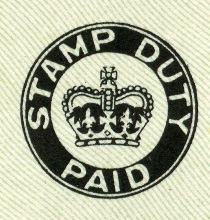 Going through a conveyancing process is not easy and it does take some time. Luckily, you have the pleasure of having a conveyancer represent you in the transactions. However, the bark starts with you identifying a credible conveyancer to do just that. For the majority of clients, it has to do with making the biggest investment of their lives or selling one. This calls for caution and that’s why it’s important to use accredited conveyancers.
Going through a conveyancing process is not easy and it does take some time. Luckily, you have the pleasure of having a conveyancer represent you in the transactions. However, the bark starts with you identifying a credible conveyancer to do just that. For the majority of clients, it has to do with making the biggest investment of their lives or selling one. This calls for caution and that’s why it’s important to use accredited conveyancers.
One can use a solicitor or a conveyancer in the UK when buying property, selling, subdividing land, updating a title or looking to remove easements from one’s property. My recommendation is this solicitors firm. I have used them twice now and have been really happy with what they have done for me.
Institutions such as the Law Society’s Conveyancing Quality Scheme (CQS) and the Council for Licensed Conveyancers (CLC) function as regulators in the industry. CQS registers solicitors in the field and ensures that have met certain criteria while CLC regulates the training and licensing of conveyancers. Both perform vital roles that keep the industry players in check, thus favouring the public.
When looking to engage the services of a conveyancer, getting someone that is accredited has many advantages. For one, you get some peace of mind knowing that the individual or firm has been vetted by regulatory bodies and is competent to offer the services you seek. Not every firm is registered under such bodies. They have to meet certain qualifications and undergo regular checks. Using such firms will therefore guarantee you quality service.
In an industry with so many players, it’s not easy for clients to narrow down their choices to one firm. Conveyancing firms are on the increase and with the sale or purchase of a house at stake; one has to practice utmost caution. Spotting an accreditation badge from a recognized body however, makes this so much easier. Accredited firms are obviously more favoured and one will select them over other unrecognized bodies. This saves one time which is vital when you’ve spotted your dream home or an ideal investment and the clock is ticking. Sometimes, when you want to get a conveyancer regulated by a certain body, all you have to do is contact the body for local referrals and you’re good to go.
Sometimes, misunderstandings or unethical practices may crop up during the conveyancing process. Within the three months of this delicate process, one could fall out with the conveyancer due to delays, pricing or a number of other issues. When dealing with an accredited firm, one can reach out to the regulatory body for a solution. In such a scenario, one has the comfort of knowing that a higher body has the authority to intervene and settle the dispute. Regulatory bodies keep on evaluating the service provision of their members, listening to complaints and taking disciplinary action where necessary. The client therefore gets justice without having to go through a lengthy or costly court process.
 Making a list
Making a list

You must be logged in to post a comment.